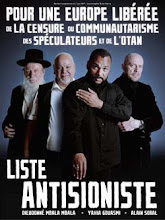Under a global system of governance, all people must live under the same laws. Which laws rule supreme is what determines the character of the global system.
From the Jean Monet Working Paper Series:What is preemtion? It's the decision over WHICH law holds more weight. In the U.S. that would be federal law over a conflicting state law:
Amedeo Arena, "The Doctrine of Union Preemption in the EU Single Market:Between Sein and Sollen" (JMWP no. 03/10)
"The introduction of a competence catalogue in the TFEU by the Treaty of Lisbon eliminated the overlap between the preclusion of national lawmaking powers attributable to the exclusive character of EU competences and that stemming from the enactment of EU legislation, thus opening the doors to scholarly investigation of Union Preemption as a general theory of the effects of EU legislation in non-exclusive competence areas. The first aim of this work is to describe what Union Preemption is ("Sein") in the context of the EU single market, thus allowing, given an item of EU legislation, to determine its preemptive scope by reference to certain "markers", such as its legal form and the harmonization model it embodies. Against the background of the existing application uncertainties, this work further seeks to suggest what Union Preemption ought to be ("Sollen") to meet the current needs of European integration, taking into account the diversity of situations where preemption issues arise and the changes in the legal, political, and economic context that have occurred in the single market since 1957."
"The doctrine of federal preemption declares that federal law displaces overlapping or potentially conflicting state law.1" http://www.willamette.edu/wucl/pdf/review/41-3/rice.pdfIn the EU, that would be Community Law over a conflicting national law:
http://eulaw.typepad.com/eulawblog/2005/10/gmos_preemption.html
Article on the relationship between the UK and the EUSee also:
http://eulaw.typepad.com/eulawblog/2006/01/article_on_the_.html?no_prefetch=1The relationship between the United Kingdom and the EU is one of those fascinating topics that just seems to get more complex the more you look into it. So it is good to point to a refreshingly original and carefully researched article by a British academic, Richard Mullender of the Newcastle Law School. The article is entitled "Two Nomoi and a Clash of Narratives: The Story of the United Kingdom and the European Union". You can download it here (you may need to register, but it's free to do so for just the odd download).This is what the abstract states :
"Robert Cover’s argument in Nomos and Narrative applies to a system of municipal law (that of the U.S.A.). This article seeks to demonstrate that Cover’s claims concerning nomoi and narratives have relevance to relations between the United Kingdom and the European Union (a non-municipal context, in which the concept of supranationalism figures prominently). While making this move from a municipal to a non-municipal setting, central strands in Cover’s argument are explained or developed by reference to the literary theory of Mikhail Bakhtin, communitarian political philosophy, and the writings of Isaiah Berlin and Joseph Raz on value incommensurability. Along with Cover, these writers are used to analyse a clash between a narrative of redemption (associated with the pursuit of European integration) and British narratives of insularity (which run on, among other things, the themes of independence and sovereignty). This essay concludes by identifying these two types of narratives as standing in a relationship of ineliminable tension."Really, it rewards reading.
(emphasis in the first graph and eternal links in the abstract added by Niki)
http://nafcucomplianceblog.typepad.com/nafcu_weblog/preemption/













1 comment:
Federal Law over State Law. And yet our Constitution states that the only powers the Federal Government has is those that are spelled out and everything else belongs to the States and/or to the People. Funny how that worked out.
Post a Comment